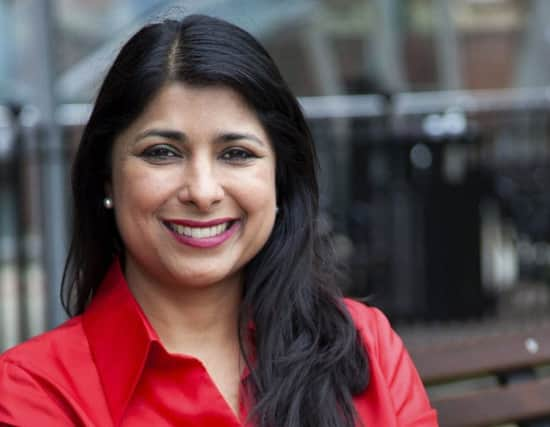Why we need to create a world for Greta Thunberg’s generation to enjoy - Rashmi Dubé


The most prominent issues globally facing businesses today are climate change and slave-like labour, both of which require urgent action.
We, both as businesses and consumers, are entering a period where we need to choose how the world is going to look. Do we want Huxley’s ‘Brave New World’ or one where Greta Thunberg and her generation can have a world they enjoy? The choice is down to us as individuals and businesses.
Advertisement
Hide AdAdvertisement
Hide AdThe responsibility and ownership cannot sit alone with the consumer. As people we have not really evolved from the prehistoric days. As humans we are still essentially hunter-gathers.
Researcher E.O Wilson in a report for the United Nations University states that our characteristics of human behaviour “... that became fixed in our population through natural selection occurred over the 95 per cent of our pre-modern existence where we lived in sparsely populated hunter-gatherer bands with local community connections”.
That is to say consumption has to satisfy our human needs and it is a combination of this need and businesses’ desire to fulfil this need that is causing damage to environment and creating a labour force that are either slaves or paid a pittance. Over the last 50 years we have seen an increase in consumption leading to today’s world being filled with plastic, fast fashion and increase in unconscious purchases without any thought of the true cost.
The consumer society wants its goods/services fast and easily disposed of – in a wasteful way. What businesses have created is a global consumer who increasingly can eat the same foods, wear the same clothes, listen to the same music and drive the same cars. A new world has already developed, and the consumer and business are participating in it.
Advertisement
Hide AdAdvertisement
Hide AdNeither really want to change their behaviour; the consumer in state of ever needing “stuff” and the business fulling the need for profit. The onus to change, however, should be placed upon the business.
Yet, this is not the case. The consumer is penalised and asked to change their behaviour. Surely the business should also change their behaviour to help the environment and those that work within it.
Climate change is an issue that will not go away and the questions we must ask ourselves, particularly in light of possible new trade agreements, is how the business world can make a difference. It is unfair to say the responsibility sits solely with any one government.
For businesses, it is really a question of profit and cost. How much do I have to spend to become better for the environment or how much in the short term do I lose from say not supplying good fast fashion?
Advertisement
Hide AdAdvertisement
Hide AdI believe that businesses in Yorkshire are the best and have a strong moral compass. I believe that we should join together and create a climate/environmental/labour friendly brand. Made in Yorkshire brands that have considered the global issues are forging the path for others. I know it is not easy to change.
I appreciate this as my business has recently gone paperless (as much as the courts allow), but unless businesses stand up and take responsibility, change is going to be slow and far too late.
I would make my New Year’s wish that Yorkshire becomes the leading light in changing how we approach consumption as individuals and the environment and consumption as businesses, even if it is just one small step of all the shops in Yorkshire refusing to provide plastic bags.
Rashmi Dubé is managing director of Legatus Law